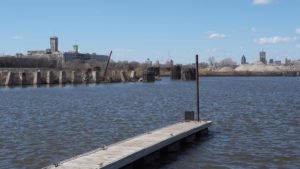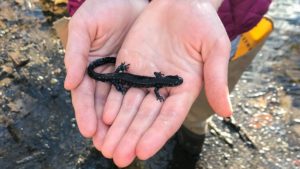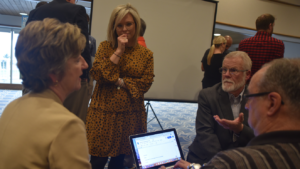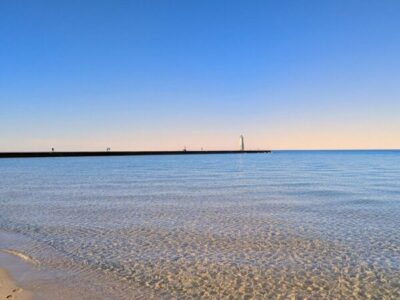
When talk about the U.S. EPA requesting wetland research proposals and funding them with $10 million started in 2010, Central Michigan University Professor Don Uzarski was “more than surprised.”
“When I first heard of the funding, I assumed that it was a rumor gone out of control,” Uzarski said.
The money came from the initial Great Lakes Restoration Initiative grants the Obama administration put in its first budget.
Uzarski knew he submitted a strong proposal because he had assembled a team of the top Great Lakes coastal wetland scientists. Uzarski and others had been working on Great Lakes wetland research specific to measuring ecosystem health since the late 1990s but on a financial shoestring. The sudden windfall of $10 million changed everything.
“That influx of funding and support dramatically widened our field of research opportunities,” Uzarski told Great Lakes Now. “We were suddenly able to plan research and monitor wetland health far beyond previous capabilities.”
It also allowed him to bring top wetland scientists from around the region together on a regular basis.
The result was the ability to provide much-needed critical data that can inform and support the decisions that wetland managers make, Uzarski said.
A subsequent $10 million grant was received in 2015 and Uzarski and his team are waiting for approval of another five years.
Great Lakes Now discussed the importance of wetlands with Uzarski in a wide-ranging email interview.
He described the role wetlands can play in mitigating coastal erosion that result from high lake levels, elaborated on a colleague’s fear that protection of the Great Lakes is backsliding to the 1960s era and shared the most important thing an average citizen should know about wetlands.
The PBS documentary Linking Land & Lakes airs on Detroit Public TV at 8 p.m. on March 31.
The interview was conducted by senior correspondent Gary Wilson and took place via multiple email exchanges. It was edited for clarity.
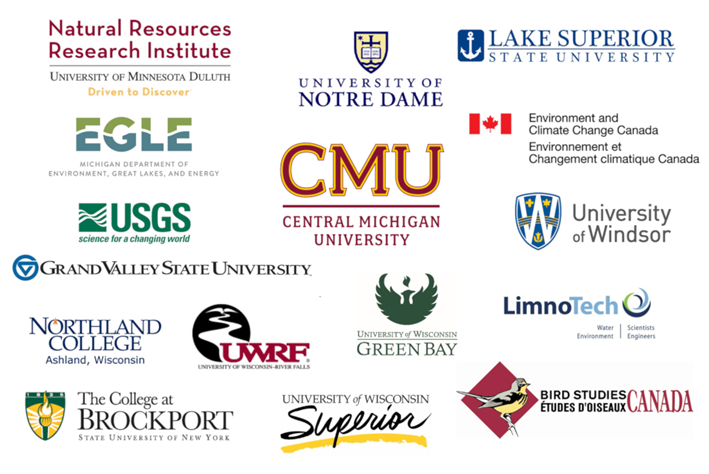
Great Lakes Coastal Wetland Monitoring Program of the USEPA – GLNPO, Image courtesy of Central Michigan University
Great Lakes Now: You and your region-wide colleagues are 10 years into this wetland-monitoring project. What is your biggest takeaway?
Don Uzarski: The program is unprecedented in its scope and magnitude. We are now able to make informed decisions about these ecosystems. Nothing of this magnitude has taken place before.
GLN: Why the previous void of information?
DU: The federal governments and states and provinces were all learning the importance of coastal wetlands and doing what they could to monitor and study these systems, but everyone was just doing what they thought might be the proper approach. It was not until 2000 when the U.S. EPA announced that they would fund a unified effort of eight states and two provinces to establish standard protocols that would allow for transferable information. That got everyone on the same page and made data comparable from state to state and state to province.
GLN: Has anything surprised you?
DU: The number of new scientific discoveries that have taken place with this work is amazing. We have likely learned more about these ecosystems in the last 10 years than ever before.
The most surprising thing to me personally is the overwhelming number of requests for the use of data. I knew that the scientists and state and federal managers needed the data, but I am always surprised at the diversity of the groups using it. Local municipalities, chemical companies, consulting firms, conservation groups and even interested homeowners are accessing these data.
GLN: Can you describe a success story based on your work? And an area or project where the work has come up short, and why?
DU: There are more success stories than I can list here, but two stand out. They’re the number of future scientists this program has trained and the distance that the program has taken the science. Wetland science is relatively young because these systems have traditionally been overlooked as ‘too wet for terrestrial scientists’ and ‘too dry for aquatic scientists.’
If there is a shortfall, it’s because there was an early misperception of the project’s mission. Some believed it was our intent to quantify the Great Lakes coastal wetland area and that wasn’t the case. From a scientific perspective, quantification was less important because wetland areas naturally fluctuate annually or quicker. Wetland area recovery and loss is what we really need to know. Our program is not doing that specifically, but it is easy to track through state, federal and provincial wetland permits for development and restoration. Following restoration or loss, we quantify the impacts on the ecosystems.
GLN: In the documentary, University of Michigan Professor Brad Cardinale said he is seeing the most relaxed laws on the Great Lakes in decades. He said with high levels of pollution, we seem to be moving closer to the 1960s and 1970s. Can you elaborate?
DU: The current administration’s changes to the Obama-era Waters of the United States rule has set us back 50 years, back to a time when rivers caught fire. In Michigan alone, 380,000 wetlands, totaling 550,000 acres, no longer have federal protection from pollution. In Michigan, over 4,000 of the 11,000 lakes no longer have federal protection from pollution. There are 36,000 miles of streams in Michigan that now go without federal protection from pollution. These are all connected to our Great Lakes, the source of drinking water for 40 million people. Groundwater is no longer federally protected from pollution, and an estimated 30 percent of the U.S. population gets their drinking water from groundwater.
GLN: The high lake levels in the region are wreaking havoc by eroding shorelines to the point that people are losing homes and the coastal tourism economy is severely impacted. How has that affected wetlands?
DU: Great Lakes water levels are supposed to fluctuate and that is critical to establishing the structure and function of Great Lakes coastal wetlands that protect our shoreline from erosion.
What we are experiencing today is man-made and far from natural. We are seeing water levels remaining far below the long-term average for 10+ years and now far above the long-term average. We are seeing storm events of magnitudes never seen before. In 2017, Mount Pleasant, Michigan, received 20 percent of its annual rainfall in 24 hours. That event produced an enormous pulse of pollution into the Great Lakes.
Recently, evaporation was drastically reduced because the air temperature was not significantly different from the water temperature. This all results in abnormally high water levels, and the conditions that led to this were man made. Areas where wetlands have not been developed are protected from the severe erosion.
GLN: Describe the role wetlands may play in mitigating erosion.
DU: Coastal wetland structure and functions are established by hydrology and the mitigation of erosion. That’s what they do. The erosive power of the system forms and maintains the wetland. I’ve experienced 4-foot waves hitting us as we worked on the outer edge of a coastal wetland. When we moved in to work at the shore side of the system, we did not see a ripple. The vegetation knocks down the waves and protects the shore.
GLN: The wetland monitoring project is up for a five-year renewal. In 2025, where would you realistically like to see the health of Great Lakes wetlands?
DU: That is the same question that many government agencies are asking in the U.S. and Canada. My answer is always the same. We just have to make progress. That is realistically the only thing that we can hope for because there are currently shortsighted individuals trying to obtain short-term economic gains at the expense of long-term supplies of clean drinking water.
GLN: What’s the most important thing the average Great Lakes citizen should know about the value of wetlands?
DU: Everyone should care about wetland protection because these systems are providing services to us free of charge. Each of them serves as a free-of-charge water treatment facility. If we had to pay for this service, it would consume an enormous amount of resources – more than we can afford to pay for.
More stories about wetlands from Great Lakes Now:
